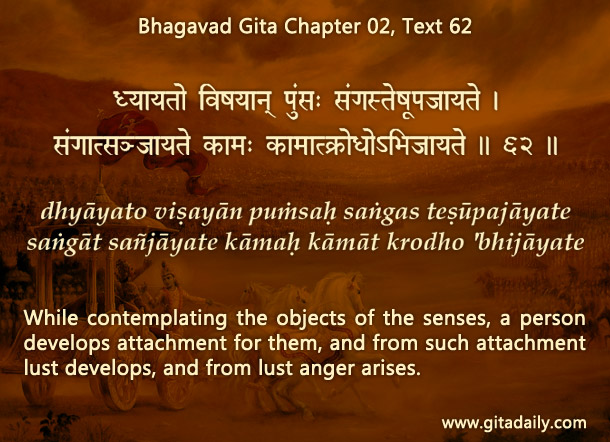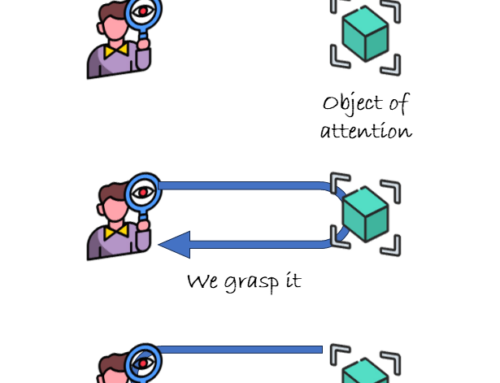Watch your mental input – Suppose we are going on tour, riding a strong swift horse. Suppose the horse catches sight of a juicy vegetable in a ditch on the roadside. If it gets attracted to that vegetable and starts racing toward it, restraining it will be difficult. To prevent such troubles, expert riders put on their horse blinkers that narrow its vision.
We need a similar preventive approach for managing our mind, which is like a horse we are riding. If we let our mind dwell unrestrictedly on the many stimuli perceived by our senses, some sensual stimulus will captivate our mind, filling it with fantasies of immediate and immense pleasure. These fantasies will induce forceful urges that can be difficult to restrain. The Bhagavad-gita outlines how indiscriminate sensual contemplation (02.62) leads to self-destruction (02.63).
How can we prevent such inner trouble? First, by assimilating a key principle in mind management: what goes into our mind is much easier to regulate than what comes out of it. Second, by applying that principle to regulate our mental input. Unfortunately, there are no physical blinkers for a subtle mind. Moreover, the mind gets inputs from the senses, and we can’t function with closed senses.
Nonetheless, what can serve the function of blinkers for our mind is a strong sense of purpose. Before embarking on any activity, especially activities that take us into temptation-filled areas, we can consciously remind ourselves why we are going there. When that purpose fills our mind, it focuses on the things that matter for us, and the chances of it getting distracted by other stimuli decrease substantially.
One-sentence summary:
What goes into our mind is much easier to control than what comes out of it — regulate your mental input by cultivating a strong sense of purpose.
Think it over:
- Explain with an example how mental input is easier to control than mental output.
- How can we put blinkers on our mind?
- Consider any temptation-filled area you need to regularly enter. Note your purpose for going there and read it aloud before entering that area.
***
02.62: While contemplating the objects of the senses, a person develops attachment for them, and from such attachment lust develops, and from lust anger arises.
To know more about this verse, please click on the image



Nice, please keep it up
Wonderful pr ..
Happy to be of service.